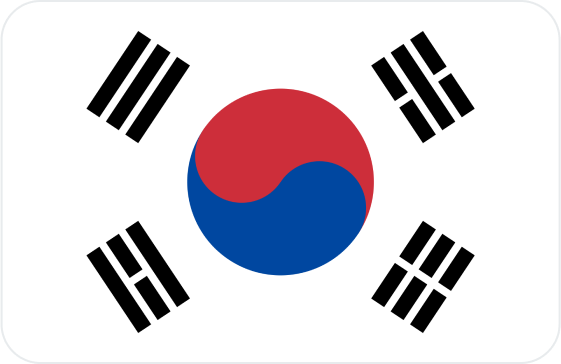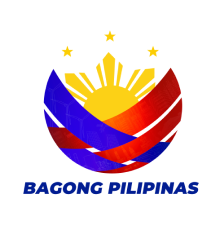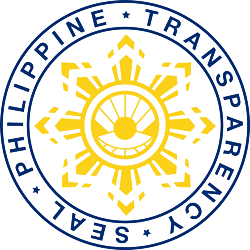

Philippines-Korea FTA
Philippines-Republic of Korea Free Trade Agreement
The Significance of the Agreement
Agreement Overview
The Republic of Korea-Philippines Free Trade Agreement (Korea-Philippines FTA) is a bilateral agreement aimed at enhancing economic cooperation and reducing trade and investment barriers between South Korea and the Philippines. The agreement promotes cooperation in various areas, including goods, services, investment, and human resource development, with the goal of economic integration.
Key Benefits

Reducing tariff and non-tariff barriers to promote trade between South Korea and the Philippines.

Increasing bilateral investments through investment protection and promotion clauses.

Stimulating economic growth and creating jobs in both countries.

Enhancing skills and capacity building through training programs and educational exchanges.

Promoting economic cooperation through market opening and regulatory relaxation in services and finance.
Expected Effects
- Increased
Exports - Investment
Inflow - Strengthened
Economic
Ties
-
Increased Exports
Expanding the market for Philippine agricultural products, seafood, and electronic goods in South Korea.
-
Investment Inflow
Encouraging South Korean technology and financial services to invest in the Philippines.
-
Strengthened Economic Ties
Enhancing mutual economic ties and fostering sustainable growth.
The Significance of the Agreement Signing
The signing of the Korea-Philippines FTA represents a significant milestone in bilateral relations. The key significances are:
Deepened Economic Integration
Korea-Philippines FTA promotes economic integration between South Korea and the Philippines, increasing economic interdependence and strengthening cooperative relationships. This leads to the activation of trade and investment, fostering sustainable economic growth.
Strengthened Global Economic Order
Korea-Philippines FTA strengthens the multilateral trading system and counteracts protectionist tendencies, creating a free and fair trade environment. This stabilizes the global economic order and helps both countries maintain competitiveness in the global market.
Stabilized Supply Chains
Korea-Philippines FTA supports human resource development through various programs, including training and educational exchanges. This improves skills and capacities in both countries, contributing to long-term economic growth.
Support for SMEs
Korea-Philippines FTA expands opportunities for small and medium-sized enterprises (SMEs) to access new markets and participate in international trade. This promotes the growth and development of SMEs and increases inclusivity and diversity in both economies.
Promotion of the Digital Economy
Korea-Philippines FTA supports the growth of financial services by opening financial markets and relaxing regulations. This helps both countries enhance economic competitiveness through financial technology innovation.
Importance of Target Country Markets in the Agreement
Overview of South Korea
South Korea is the 10th largest economy in the world with a highly developed industrial base and advanced technology. South Korea offers significant market opportunities for Philippine products and services due to its high purchasing power and demand for high-quality goods.
Economic Significance
- i. Large Consumer Market: South Korea has a vast consumer market with high purchasing power.
- ii. Technological Advancement: South Korea is a global leader in technology and innovation.
- iii. Economic Growth: South Korea has a stable economy with significant growth potential in various sectors.
Major Industries and Trade Items
South Korea is a leading producer of electronics and electronic components.
South Korea has a strong automotive industry.
South Korea is known for its high-quality machinery and industrial equipment.
FTA Negotiation Timeline
October Negotiations concluded
September Agreement signed
September PH Domestic Ratification concluded
Partner Country Information
Country Overview and Economic Trends

-
Capital
Seoul
-
Language
Korean
-
Population
Approximately 52 million
-
Economy
Highly developed and technologically advanced, major industries include electronics, automobiles, machinery, and financial services.
-
Trade
In 2023, trade volume with the Philippines was approximately $15 billion, with major Philippine exports being electronic products, seafood, and agricultural products, and major imports being machinery, automobiles, and electronics.
Trade and Investment Opportunities
-
Trade Opportunities
South Korea offers substantial potential for Philippine exports of electronic products, agricultural products, and seafood.
-
Electronic Products
Philippine electronic components and appliances have high demand in the South Korean market.
-
Agricultural Products
Philippine mangoes, bananas, and other agricultural products are popular among South Korean consumers.
-
Seafood
High demand for Philippine tuna, shrimp, and other seafood in South Korea's food market.
-
Investment Opportunities
There are numerous opportunities for Philippine companies to invest in South Korea's technology, manufacturing, and service sectors.
-
Technology
Philippine IT companies can collaborate with South Korean tech firms to enhance competitiveness in the global market.
-
Manufacturing
Philippine manufacturing companies can leverage South Korea's advanced manufacturing technology to improve production efficiency.
-
Services
Philippine service companies can enter the South Korean market to provide a range of services, including business process outsourcing (BPO) and financial services.





